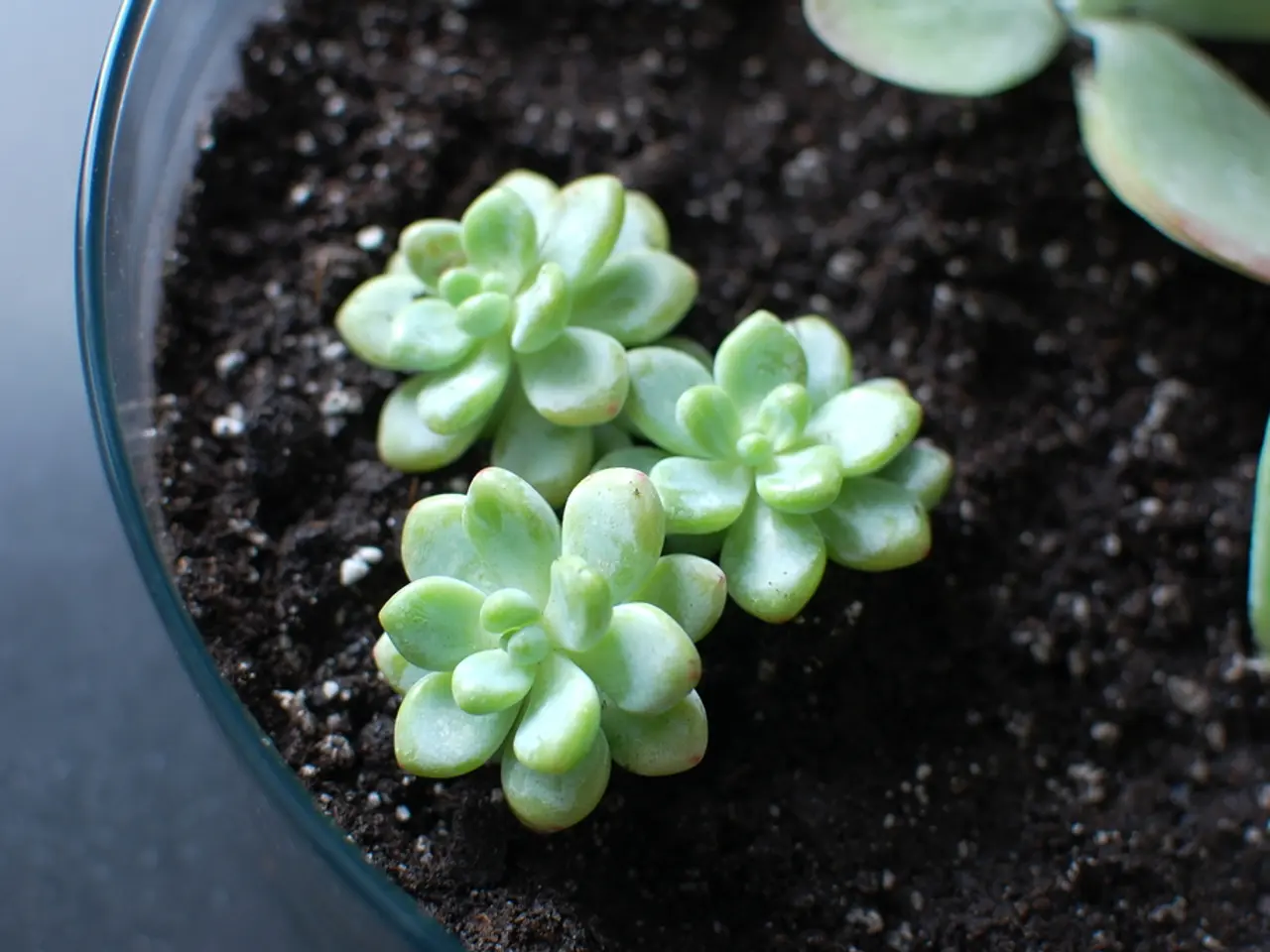Advantages and Disadvantages of Organic and Synthetic Fertilizers
=============================================================================
In the quest for a lush, thriving garden, the choice between organic and chemical fertilizers can be a challenging one. Both options have their pros and cons, each catering to different gardening priorities.
Organic fertilizers, made from natural substances like plant and animal wastes and powdered minerals, offer several advantages. They improve soil structure, increase water retention, promote healthy soil microbial ecosystems, and reduce nutrient leaching. Moreover, they are free from cumulative toxins and enhance long-term soil health. However, organic fertilizers have lower nutrient concentrations, work more slowly, require active soil microorganisms to convert nutrients into plant-available forms, and their application is less precise. They may also contain weed seeds or harmful salts if not properly composted.
On the other hand, chemical (inorganic) fertilizers provide a high concentration of nutrients like nitrogen, phosphorus, and potassium in readily available forms, leading to rapid and precise effects on crop growth. They are convenient to apply, available in various formats, cheaper, and can quickly improve poor soils. However, the disadvantages of chemical fertilizers include potential over-fertilization causing plant burns, not improving or sometimes harming long-term soil health, altering soil pH and microbial communities, risk of environmental contamination through runoff, and short-term nutrient availability due to leaching.
The nutrient ratios in chemical fertilizers are clearly defined on the label, making it easier for growers to choose the right blend for their needs.
In summary, the choice between organic and chemical fertilizers depends on priorities such as sustainability, speed of nutrient availability, soil condition, and environmental concerns. Organic fertilizers, while more environmentally friendly, may take longer to show results and require more careful handling. Chemical fertilizers, while providing quicker results, can have negative long-term effects on soil health and the environment if not used responsibly.
[1] Sustainable Agriculture Research and Education. (2021). Organic Fertilizers vs. Chemical Fertilizers. [Online] Available at: https://www.sare.org/resources-pubs/blog-post/8738
[2] National Gardening Association. (2021). Organic Fertilizers vs. Chemical Fertilizers: Which is Better for Your Garden? [Online] Available at: https://www.gardeningknowhow.com/garden-how-to/soil-fertilizers/organic-vs-chemical-fertilizers.htm
[3] University of California Agriculture and Natural Resources. (2021). Organic Fertilizers. [Online] Available at: https://ucanr.edu/sites/Soils/files/290191.pdf
[4] Penn State Extension. (2021). Organic Fertilizers vs. Chemical Fertilizers. [Online] Available at: https://extension.psu.edu/organic-fertilizers-vs-chemical-fertilizers
- In the realm of environmental science, the use of organic fertilizers in home-and-garden settings can contribute to a healthier lifestyle by promoting sustainable gardening practices and preserving long-term soil health.
- For those pursuing a lifestyle rooted in environmental-science principles, the choice of organic fertilizers in home-and-garden scenarios can align with their commitment to reducing environmental impact and fostering a thriving garden ecosystem.




